death
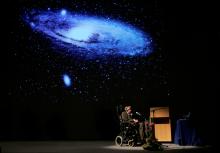
“What could define God [is thinking of God] as the embodiment of the laws of nature. However, this is not what most people would think of that God,” Hawking told Diane Sawyer in 2010. “They made a human-like being with whom one can have a personal relationship. When you look at the vast size of the universe and how insignificant an accidental human life is in it, that seems most impossible.”

THE WHOLE CHRISTIAN YEAR stretches toward this moment when we reach back to acclaim the power of God over death manifest in the resurrected life of Jesus. The passion and pageantry of the days from Palm Sunday to Easter Sunday enable believers to mystically live in the ancient moments we commemorate. At the same time, we are very much present in a world that is anything but resurrected; it is, as I often preach, “crucified and crucifying.” It is easy to find the broken places in our world and those that deal death. Where are the resurrection spaces? Where do we look to see that death does not, in fact, have the last word? What is our work in bridging the gap between death and life?
This month’s lessons brim with passionate faith on Jesus and his triumph over the grave. These accounts stem from nearly a century and more past the events that inspire their faith. The authors and editors of these texts also lived in a world in which the triumph of the resurrection was not apparent in many aspects of their lives; many went to gruesome deaths confident in the resurrection despite the power the empire wielded over their mortal lives. To strengthen our faith, they left us the accounts in the scriptures we read in this season. But we are not dependent on their words. We have unmediated access to the love and power of the resurrected Jesus.
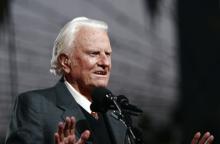
Evangelist Billy Graham died on Feb. 21. Here is a timeline of his life.
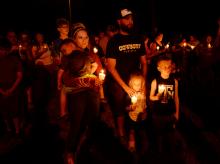
"We are dealing with the largest mass shooting in our state’s history," Texas Governor Greg Abbott said at the news conference. "The tragedy of course is worsened by the fact that it occurred in a church, a place of worship where these people were innocently gunned down."

SOUTH ASIAN-AMERICANS, such as Siddhartha Mukherjee and Atul Gawande, have recently made a dent in the white male hegemony that has reigned in medical writing for general audiences. Haider Warraich is following in their path with this new book on death and dying.
With liberal use of anecdotes from a medical residency in Boston, Warraich snaps the reader out of sanitized TV portrayals or even hospital experiences of death to induce a more authentic confrontation, one most would seemingly rather avoid at all costs. (Witness church members who no longer have funerals but “celebrations of life” and “homegoings,” often after enduring dehumanizing and futile end-of-life interventions.)
But is lack of knowledge about the mechanics of “modern death” in a technological society at the core of the problem, as Warraich seems to think? Is his thesis correct that our fear of death is greater than ever? Can social media posts by the dying overcome these problems?

Ailes grew the network to profound influence among right-wing audiences. But many other have found his Fox News growth strategy troubling during a time when use of the term fake news is on the rise.
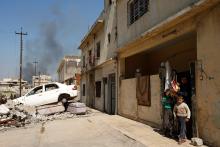
The military statement differed from reports by witnesses and local officials that said many more bodies were pulled from the building after a coalition strike targeted IS militants and equipment in the Jadida district.
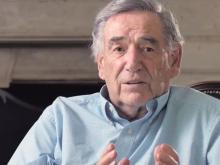
“In a town where powerful people are constantly trying to increase their name recognition and their brand, Doug Coe was the opposite of that,” said Michael Cromartie, director of the Evangelicals in Civic Life program at Washington’s Ethics and Public Policy Center. “He was a man who liked to work behind the scenes, who did not call attention to himself, who was a sort of a pastor to people in power.”
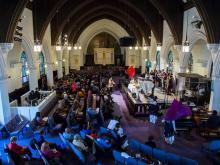
Congregants who’ve heard the sermons — often accompanied by workshops and step-by-step guides — say they are verbal permission slips to discuss a topic few want to talk about. Slightly more than a third of the general public — 37 percent — say they have given a great deal of, or some thought, to their end-of-life wishes, according to Pew Research.
A Conversation Project survey found that while 90 percent of people say it’s important to talk to loved ones about those wishes, only 27 percent have actually done that.
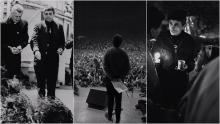
On April 30, 2016, Catholic peacemaker and activist Daniel Berrigan entered life eternal. He was a teacher and friend to many in the Sojourners community. Read more reflections on Dan's life and legacy in the August 2016 issue.
I ONCE HAD a conversation with Dan about his death. We were talking late into the night at the Block Island hermitage that his friends William Stringfellow and Anthony Towne had built for him while he was two years in Danbury federal prison, a consequence of the 1968 Catonsville draft board action. He had by then foresworn scotch, on doctor’s orders, so I was being introduced to Manhattans dry, which were somehow allowed. The place suited the topic. On the wall above us was an exorcism poem that he’d hand-lettered in a style familiar to Catholic Worker and resistance houses across the country.
I’m certain it was I who broached the topic. When we met in the early ’70s, it was in the wake of notorious assassinations: Medgar Evers and Viola Liuzzo, the Panthers, Malcolm, King, the Kennedys. There was a certain youthful grandiosity in imagining that he or others who were such troublesome peacemakers would be similarly targeted. I braced my heart. I told him so. (Then he turns around and lives, thanks be, to 94!)

On April 30, 2016, Catholic peacemaker and activist Daniel Berrigan entered life eternal. He was a teacher and friend to many in the Sojourners community. The following article is adapted from the homily Steve Kelly gave at Dan's May 6 funeral Mass in New York City. Read more reflections on Dan's life and legacy in the August 2016 issue.
IN THE STORY OF LAZARUS, told in John’s gospel, seemingly Jesus arrives too late. Humanity, doomed like Lazarus, is sealed under two tons of stone. Is this then an inspired picture of how God sees us? Humanity sealed up in death? Death taunting Jesus until Jesus has a visceral reaction? The hand of death moves the chess piece toward checkmate.
The complexity of the lie goes: “Once you are dead, once afraid, how will God guide you?” If afraid, how can one obey the guidance, dependence on the one who sent him?
“Greater love has no one than to lay down one’s life for a friend.” So God does know what it’s like to encounter death’s whiplash version. Always, everywhere, each time, each encounter, risks are included.
Jesus went the distance in this anguishing scene. To see him at work is to see life itself overcoming death, because he, as a human being, cooperated, obeyed the guidance of the one who sent him. He loved, he lays down his life.
Now there is a different moral power in town. God is going to crack death’s veneer, a chink in the armor. Through Jesus’ obedience, the crumbling begins, and the hidden, insipid hold of death is broken.
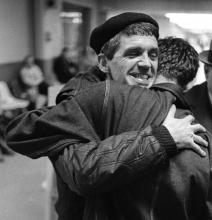
WHEN WE LOSE a Christian peacemaker such as Daniel Berrigan, as we did in April, it gets very personal for many of us. Berrigan shaped and motivated a Catholic peace movement that became a fundamental and foundational influence on Sojourners and on me personally.
During my early years at Michigan State University, friends were drafted, others feared they would be next, and the Vietnam War consumed the attention of an entire generation. Then I learned about Daniel and Philip Berrigan and the small group of Christian protesters they were inciting. They were the only Christians I had heard about who were against the war in Vietnam.
Here were some Christians who were saying and doing what I thought the gospel said—and what nobody in my white evangelical world was saying or doing. The witness of the Berrigans helped keep my hope for faith from dying altogether. African-American Christians fighting for justice and that “Berrigan handful” of Christians fighting for peace paved the way for my return to faith.
Daniel and Philip Berrigan rose to national prominence after they and seven others burned 378 draft files with homemade napalm taken from a draft-board office in Catonsville, Md., on May 17, 1968. The result was jail sentences for the group and, eventually, Daniel’s play “The Trial of the Catonsville Nine.”
Ta-Nehisi Coates on the Obama administration’s decision to seek the death penalty for the Charleston shooter: “The hammer of criminal justice is the preferred tool of a society that has run out of ideas.”
2. At Baylor, the Real Story Isn’t Hypocrisy. It’s the Victims of Sexual Assault.
“... this is a story much larger than Ken Starr and Baylor. This story is about power, and money, and institutions that claim to be faith-based but refuse to stand for victims and against violence.”
Lives in the hands of algorithms—

I’m a hospice volunteer. I visit several patients each week, just sit down and chat about stuff. I do it primarily for me – it’s who I am, how I’m wired, and I suspect that I get a lot more out of it than the people whom I visit. They share some of the most poignant and difficult and joyful moments with me. And their final days.
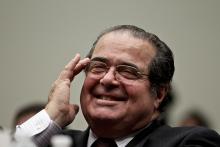
Antonin Scalia, leading figure of the conservative wing of the Supreme Court, has died at age 79. He died, apparently of natural causes, while on vacation in Texas.
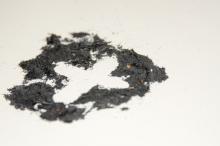
“You are dust, and to dust you shall return.” Every year on Ash Wednesday, I seek out some member of the clergy to say those words to me. They come from the curse of mankind in Genesis 3, but I find blessing in hearing them in the tale of the loving purposes of God.

All of my favorite theologians are dying. David Bowie. Alan Rickman. A couple of years ago it was Pete Seeger. It is as if all my favorite theologians are moving on.
Please take me seriously as I say this. It has been a grief-striking week. Just like when Robin Williams passed, there is this void in my life, in my way of knowing God.
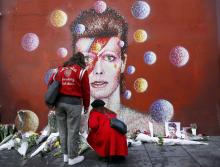
The legendary musician and showman David Bowie was as mutable and enigmatic about his religious views as he was about his music, art and gender-bending fashion choices.
Yet his death from cancer Jan. 10 at 69 brought tributes from religious leaders who knew talent when they saw it, and perhaps recognized that Bowie’s crossover style would inevitably touch the ineffable as he constantly looked for meaning — and novelty.
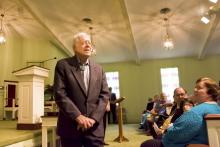
Former president Jimmy Carter was late to his Bible study class Sunday morning, something he said never happens as he walked up to the front of the sanctuary. There he received hugs from those who likely already knew why.
His service started with an announcement of something Carter’s voice indicated was weighing heavily on his heart.
His grandson, Jeremy Carter, who had spent Thanksgiving with him just weeks ago, died suddenly in the night.
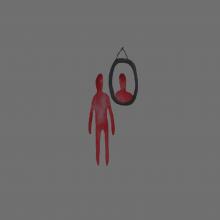
“Christ agrees to die so that mankind will live,” wrote Girard in his book Things Hidden Since the Foundation of the World.
Many progressive Christians who do not know Girard’s work will bristle at that statement. Indeed, without reading his books, it could sound like a form of penal substitutionary atonement theory that claims Jesus allows humanity to live by saving us from the violent wrath of God.
But nothing could be further from the truth. The truth that Girard revealed throughout his career is that wrath doesn’t belong to God. It belongs solely to humans. In anthropological terms, what was revealed by the death of Jesus was the human scapegoat mechanism. Once you read Girard’s works, you realize how obvious it is that the violence at the cross had nothing to do with God, but everything to do with the human propensity to scapegoat.
If Girard taught us anything, it’s that humans have been projecting our own violence onto God since the foundation of the world. We justify our violence and hatred against our scapegoats in the name of God or peace or justice, or whatever we deem to be important to our well-being.